In the Fitzwilliam Museum in Cambridge hangs a painting by Victorian artist Ford Madox Brown entitled ‘The Last of England’. A man and wife, crowded aboard a ship on a cold grey sea and battered by driving rain, pointedly refuse to look back at the White Cliffs of Dover disappearing behind them. It is understood that the journey is one-way, and conventional wisdom assumes they are heading for the Brave New World or the other colonies, as had so many. They are middle-class, more or less: though this is no luxury liner, their clothes are too good to belong to anyone driven out by poverty, so this farewell is a choice rather than a necessity. But there is an interesting detail to which I never seen a reference and which, probably, I only noticed because I happen to know first-hand those cliffs and that water. If the emigrants are bound for the Atlantic, the cliffs are on the wrong side. For them to be on the correct one, we must be at the back at the boat and the couple must be looking over the stern. But then ‘The Last of England’ makes no sense because they would still have to sail past the whole of the south coast and eventually leave it behind at Lizard Point and Escalls Cliff in Cornwall, which look nothing like that. But wherever the man and woman are going, one thing is certain: they are looking towards Europe.
But last week, 160 years later, their country voted to do the opposite, to turn away from our neighbours, from our history, from our very DNA, from the source of every civilising influence on our islands.  Most of the ‘victorious’ 52% had little or no idea what they were voting on: many of the disregarded and ever-growing poor, wanting to lash out at something or someone, swallowed the obvious lie that a Leave vote was somehow an anti-establishment protest, and have now doomed themselves and their children to more and worse of what they thought they were protesting against; many believed the other part of the lie, and can say with Caliban that The clouds methought would open and show riches; many acted through blatant xenophobia and/or the illusion that they could restore the ‘good old days’ of the 1950’s; some treated it as a bit of a laugh that would not affect the result. I hold no bitterness against those who thought they acted for the best: they were and are, to me at least, more sinned against than sinning. I admit to a certain disappointment with all the youngsters – incredibly, a majority of the 18-24 age group – who did not bother to go and vote when their own future hung in the balance, with the financially secure baby boomers who callously sacrificed their children and grandchildren to a slogan and a plastic flag, and also with the few educated people and ethnic minorities who voted Leave when they really should have known better. And I admit to something stronger than disappointment with the bigots and the political careerists, and with the so-called statesmen whose venality and greed drove the poor to such a pitch of madness and despair.
Most of the ‘victorious’ 52% had little or no idea what they were voting on: many of the disregarded and ever-growing poor, wanting to lash out at something or someone, swallowed the obvious lie that a Leave vote was somehow an anti-establishment protest, and have now doomed themselves and their children to more and worse of what they thought they were protesting against; many believed the other part of the lie, and can say with Caliban that The clouds methought would open and show riches; many acted through blatant xenophobia and/or the illusion that they could restore the ‘good old days’ of the 1950’s; some treated it as a bit of a laugh that would not affect the result. I hold no bitterness against those who thought they acted for the best: they were and are, to me at least, more sinned against than sinning. I admit to a certain disappointment with all the youngsters – incredibly, a majority of the 18-24 age group – who did not bother to go and vote when their own future hung in the balance, with the financially secure baby boomers who callously sacrificed their children and grandchildren to a slogan and a plastic flag, and also with the few educated people and ethnic minorities who voted Leave when they really should have known better. And I admit to something stronger than disappointment with the bigots and the political careerists, and with the so-called statesmen whose venality and greed drove the poor to such a pitch of madness and despair. 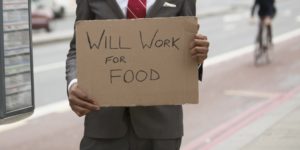 But none of this changes anything. The deed is done, and 60 million people are to throw away citizenship and employment rights in 27 countries while further impoverishing much of their own.
But none of this changes anything. The deed is done, and 60 million people are to throw away citizenship and employment rights in 27 countries while further impoverishing much of their own.
Nabokov wrote of the plight of White Soviet emigres in 1920’s Europe and of the surreal bureaucratic and social nightmare of being a ‘stateless person’. There are between five and six million Brits living abroad, two million of them in the EU, and they probably woke up last Friday morning to the sense of being something similar. I did.
Whether exile comes about through compulsion or choice or something between the two, it is not so easy not to look back at those white cliffs. I know. To adapt a currently popular meme, one does not simply become not English, any more than one simply becomes not European. Being once by good fortune at Leeds Castle in Kent on a quiet day, staring out over the lake at the trees and hills beyond, I had an understanding more total than words can convey of just why so many men had found England worth dying for. “I never imagined there were so many shades of green,” my wife’s university professor once told her, “until I went to England.” I grew up on the North Downs; the countryside is not spectacular in the way of the Grand Canyon or the Niagara Falls or Mount Fuji, but in gentle terms of colour blends and contour and other such things a painter might value, I do not know its equal in the world. Then there is the taste of the air on spring and autumn evenings when the breeze blows in from the sea.  So when Kipling in his Christmas in India poem exclaims
So when Kipling in his Christmas in India poem exclaims
‘O the toil that knows no breaking! O the Heimweh, ceaseless, aching!’
I know exactly that feeling because I have lived through it. But time moves on. Ten years ago the line could put a lump in my throat; now, as I record it here, I find myself noting and saluting Kipling’s technical device of avoiding ‘homesickness’, a sonic and rhythmic abomination near impossible to fit into metre, by replacing it with the German Heimweh.
Why, then, after all I have written above, am I so unmoved and dispassionate? Because another part of me says with equal sincerity: fuck England.
‘What have the Romans ever done for us?’ More than England, in my case. JFK might say ‘Ask not what your country can do for you’, but his country made him president. Mine has exiled me.
To be absolutely precise about this, it has given me a choice between it and my family. Courtesy of an idiotic and self-defeating immigration policy introduced as a sop thrown to nationalism and bigotry (with the ancillary benefit of excluding probable left-wing voters), non-EU nationals are admitted only with documentary evidence of earning 35,000 pounds per year, about 40% above the national average. Anyone not making that, or even anyone self-employed, is out of luck. Being married to and having children with a British citizen makes no difference. The Brit can come or stay, but his or her family must be forfeited as collateral damage.
Those responsible for this would have you believe it a tough necessity: the entire world, you see, is beating a path to the UK. The isles are sinking under the weight of economic migrants (now apparently a term of abuse, it occurring to no one that a Geordie or Yorkshireman moving down south for work is also an economic migrant). Anyone conniving at the evils of multiculturalism is a traitor, as a cousin of mine was called for not voting Leave. For self-preservation the country must act. ‘Make Britain great again.’ ‘Take Back Control.’  On this the gutter press and the barely-disguised Nazis marching through English high streets speak with one voice. Again and again the mantra is repeated: “My grandfather fought for this country – this is our country.” Well, as it happens, knuckle draggers, my grandfathers fought for it too. My great-grandfather survived Ypres. (I mean of course in physical terms; in mental terms there were no survivors of Ypres.) And in this country of yours for which my relatives fought and suffered, I am by law not permitted to live. As of last week, it has not even been enough that you shut me out of Britain: you have now shut me out of Europe too.
On this the gutter press and the barely-disguised Nazis marching through English high streets speak with one voice. Again and again the mantra is repeated: “My grandfather fought for this country – this is our country.” Well, as it happens, knuckle draggers, my grandfathers fought for it too. My great-grandfather survived Ypres. (I mean of course in physical terms; in mental terms there were no survivors of Ypres.) And in this country of yours for which my relatives fought and suffered, I am by law not permitted to live. As of last week, it has not even been enough that you shut me out of Britain: you have now shut me out of Europe too.
But, considering what is important to me, just how much would I want to return to the Best Country In The WorldTM, dream destination of every last human soul on the entire planet but most especially the brown ones?
Well, for one, my wife is quite important, and she, as I have said, is deemed an undesirable migrant. That she holds a degree in primary school teaching is of no interest or relevance to a country with a drastic shortage of primary school teachers. And the mere fact of her foreignness is clearly a problem anyway for a large part of supposedly cosmopolitan modern Britain.
Then there are my children, both in more or less the middle of school. What does good old Blighty hold for them, now that its main attraction of a free and liberal society is under such attack? Having spent 16 years teaching, I am not stringing mere words together when I say that Britain no longer has an education system: it has merely a school system, which is not at all the same thing. I have quite recently seen several proud parents sharing online their children’s first attempts at writing – comically misspelt names of animals and fruit, if I remember rightly. This would be fine and endearing if they were three or four years old, but the poor kids were eight or nine. I was reading The Lord of the Rings at that age. I was also (at the local village primary school) writing paragraphed, structured stories of maybe 1000 words – and I was not the only one in my class doing so. A national discussion has recently been held with all appearance of seriousness as to whether 11 or 12-year-olds should be able to multiply single-digit numbers. Edwardian children of that age coped with the equivalent of what is now A-Level maths. Several years ago the milestone was reached where more than 50% of 16-year-olds failed to get 5 GCSE’s at grade C or above, already a disgracefully low target. Put bluntly, most of them now leave school semi-literate. I once read, I have no idea where, a comment by an American that ‘My school taught you to stand in a line and answer your name. It basically prepared you for prison.’ Ours prepare you to work in Poundland for Jobseeker’s Allowance. (This state of affairs is generally convenient for the status quo, but the pigeon has come home to roost with tragic irony in the matter of the referendum, when even the government, barring a few shameless chancers, needed a majority of the electorate to exercise the critical thought it had been conditioned not to possess.) And any youngsters bright enough to succeed despite the oversized classes and demoralised teachers then have to decide whether going to university is worth a debt that might saddle them for half their working lives. They had until recently the option of going abroad to the EU for a higher education at an affordable cost, but that is probably now gone.
I once read, I have no idea where, a comment by an American that ‘My school taught you to stand in a line and answer your name. It basically prepared you for prison.’ Ours prepare you to work in Poundland for Jobseeker’s Allowance. (This state of affairs is generally convenient for the status quo, but the pigeon has come home to roost with tragic irony in the matter of the referendum, when even the government, barring a few shameless chancers, needed a majority of the electorate to exercise the critical thought it had been conditioned not to possess.) And any youngsters bright enough to succeed despite the oversized classes and demoralised teachers then have to decide whether going to university is worth a debt that might saddle them for half their working lives. They had until recently the option of going abroad to the EU for a higher education at an affordable cost, but that is probably now gone.
And what of my own prospects there? I hold a master’s-level teaching qualification that British law does not recognise as a master’s degree because of an illogical technicality, so I would be demoting myself down to the poverty line by going as a supposedly low-skilled and forever mortgage-enslaved worker to a country where the government’s idea of affordable housing is anything under half a million pounds.
But man does not live by bread alone. This, after all, is a country that led the Enlightenment, that stands always as a bastion of individual liberty, that wrote the Convention on Human Rights (which it now wants to escape), the land of Shakespeare, of Chaucer, of hope and glory, of fish and chips. This is a land of – and here I regret having no way in text to convey the accent of Del Boy from Only Fools and Horses – culture. N’est-ce pas?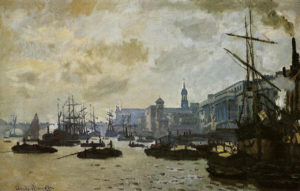
The plain truth is that England has never cared a straw for art or artists of any kind. Shakespeare himself never bothered to correct his own proofs or to put out author-approved ‘official’ versions of any of his plays against the ‘pirate’ ones doing the rounds: being a dramatist, even the greatest alive, was apparently less important to him than getting his coat of arms and his house by the river and his life as a country gentleman. And it comes all the way forwards to our own time, when our major galleries hold prizes to fete new marvels of banality and pointlessness that would not get hung in a pub toilet in Italy or France – our Royal Academy having successfully rejected and our cognoscenti successfully ignored none other than Claude Monet working under their noses for eight months in London – while our most eloquent living graphic artist paints illegally on walls, his pictures whitewashed by local councils when morons complain.  The day Banksy dies, mind you, he will instantly be ‘discovered’ as a cultural asset and will barely make it into the ground before a blue plaque is stuck on his house.
The day Banksy dies, mind you, he will instantly be ‘discovered’ as a cultural asset and will barely make it into the ground before a blue plaque is stuck on his house.
I happened recently to stroll through the tiny Tikhvin cemetery in St. Petersburg, which holds the remains of, among others, Dostoevsky and Tchaikovsky. The musicians have their corner, as do the writers, the painters and so on. And the reflection was inescapable that England has no equivalent. There is the Poets’ Corner of Westminster Abbey, of course, but that owes its origin to the mere chance of Chaucer having been Clerk of Works there. (Had contacts not secured him a court position, he would have died unknown.) Highgate Cemetery’s famous names are a few among 170,000. Near Canterbury in Kent where I for some time lived, Joseph Conrad, probably the first great novelist in the English language, lies beneath a modest stone bearing a misspelling of his name, interred there by ‘a few old friends, acquaintances and pressmen’. One, editor and critic Edward Garnett, wrote of it:
To those who attended Conrad’s funeral in Canterbury during the Cricket Festival of 1924, and drove through the crowded streets festooned with flags, there was something symbolical in England’s hospitality and in the crowd’s ignorance of even the existence of this great writer.

A few months later from just across the Channel, he was followed into eternity by Anatole France, an admirable enough author but not by some distance his equal. And, as predicted by Conrad’s friend and biographer Georges Jean-Aubry, all Paris turned out for the funeral.

The novel in English was only established as a serious art form by Henry James, Conrad and Ford Madox Ford – that is, by an American, a Pole and a half-German. Ford’s grandfather, painter Ford Madox Brown (see ‘The Last of England’ above), had formed with Swinburne and the Rossettis a circle that became the pre-Raphaelite brotherhood, and them a certain Charles Dickens had wanted imprisoned for immorality in their work. Ford the grandson, having served in the trenches of the Somme shortly after publishing probably the most technically perfect novel the English language had or has seen, was, by virtue of his profession, eventually demobilised in the eighteenth and final rank of priority along with ‘gypsies, vagrants and persons not engaging in productive labour’. It stands to reason, naturally, that the pen is not mightier than the shovel or the plough when a country and a world need rebuilding. But with all the blood and cruelty and horror that has bedevilled Russia, for instance, at no time in that nation’s entire history would it have valued and classed literary writers – even while repressing them – alongside ‘gypsies, vagrants and persons not engaging in productive labour’. Neither, most likely, would any country of mainland Europe.
It is not only the arts. The standard in England and Wales of public debate, and of most of what passes for journalism even at the national level, would embarrass the sort of third-world mud-hut village with which we mostly interact by bombing. (As of last year, you may remember, he who does not support wars to enrich the arms trade is officially a ‘terrorist sympathiser’.) Anyone thinking this an exaggeration is invited to glance at the websites of The Sun, The Daily Mail or The Daily Express, or indeed to watch five minutes of any Prime Minister’s Questions. Recent research showed that reading one of our tabloid newspapers was worse for the verbal ability and intelligence than reading nothing at all. And it is these newspapers that decided this referendum.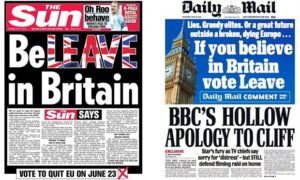
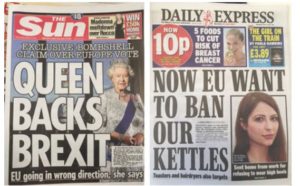


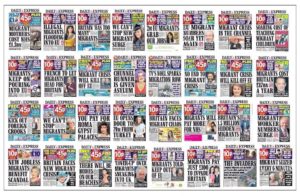
So ‘we’ the people have chosen to row ourselves out into the Atlantic, towards America – which is to say, in all probability, towards Donald J. Trump. A week or two ago, I saw beneath a clip of a fairly typical Trumpian oration a comment in limited but serviceable English: ‘As French I feel sorry for Americans. His speaking has no structures. He is like a old boring drunk guy.’ And I felt a pulse of recognition for this Gallic brother or cousin of mine who had echoed, in English roughly comparable to my French, my own thoughts whenever I see Monsieur Trump: remove the suits and money and stick him on the corner of any street, and passers-by, especially those with children, would cross the road to avoid him. In a different way, among the polished Etonian Tories, braying donkey Nigel Farage would be equally naked without his fascist following, so I have no doubt – speaking as one who has had just enough contact with the ruling classes to observe something of how they think and operate – that they will bin him at the first opportunity. But it will be too late. We are already at the point where foreigners and even non-white native Brits are being told in public that they should now pack their bags and go home. The evil genie that has been uncorked will not be going back into the bottle.



This, for better or worse, is what foreigners will always call my country. But this for me it is The Last of it, and whether I ultimately turn to face Europe or the Commonwealth, I shall not look back at the white cliffs. If my compatriots wish to live as insular little Englanders hating and fearing, they will do so without me. Certainly they will not object. And I think that perhaps I shall change my one-line biography on my social media accounts to ‘Traitor, terrorist sympathiser, economic migrant and stateless person’ (‘refugee’ being disrespectful to the real ones), not for purposes of alliteration but because a few more traitors in the 1930’s in Germany and Italy and Japan – and yes, Russia – might have saved 80 million lives.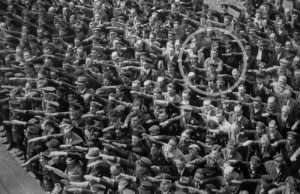
The bureaucrats of Brussels did not do enough against poverty and exploitation, but they did demonstrably more than those of Westminster; besides which, expecting the average politician to care about the poorest in society is rather like expecting water to flow uphill. So in a disastrous failure to see the wood for the trees, those who rejected the EU for its many shortcomings forgot that it existed precisely so that they would have nothing better to worry and squabble about than who makes which regulations concerning the boundaries of fishing rights or who needs which type of visa to go where. What would our grandfathers and great-grandfathers not have given for such a set of ‘problems’?
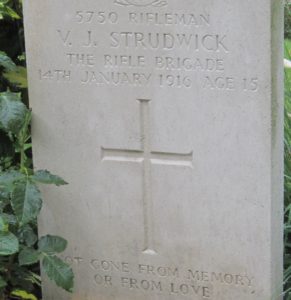
Europe, to those of us who wished to remain, was not about who makes which rules about what. It was about colour and cousinship, it was about peace and opportunity, it was about broader horizons of the mind and the heart, it was about our young growing up to see themselves as one big family and not as warring tribes, and as such it spoke to all that is finer in human nature. Glance now at hate-riven England and you already have to ask: was it all a dream? Were we, like Caliban, deceived by the sounds and sweet airs of a thousand twangling instruments? For if it was a dream, then all that now remains to us is to add our voice to his:
…that when I waked
I cried to dream again.
